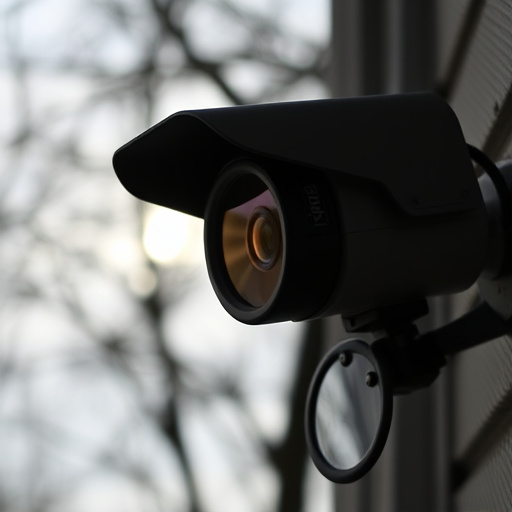In many regions, the deployment of covert recording equipment, or "nanny cameras," in daycares is strictly regulated to balance child safety with privacy rights. Daycare centers must understand legal requirements regarding parental consent and monitoring purposes before implementing surveillance. Discretionary placement of small, unnoticeable cameras high on walls or behind furniture is recommended for ethical and legal standards. Regular maintenance, detection methods, staff training, and visible indicators are crucial for preventing unauthorized recordings while maintaining trust among parents, caregivers, and facilities. Transparency about surveillance systems and ethical video monitoring practices foster understanding and cooperation.
In today’s digital era, ensuring the safety and well-being of children in daycares is paramount. This article explores the legal landscape surrounding the use of legal nanny cameras for daycare, delving into best practices for discreet placement of covert recording equipment. We also discuss detection methods, ethical considerations, and strategies to build trust with parents and caregivers. Understanding these aspects is crucial for navigating this sensitive issue effectively.
- Understanding Legal Requirements for Nanny Cameras in Daycares
- Best Practices for Discreetly Placing Covert Recording Equipment
- Detection Methods and Countermeasures to Avoid Unwanted Surveillance
- Ethical Considerations and Building Trust with Parents and Caregivers
Understanding Legal Requirements for Nanny Cameras in Daycares
In many regions, the placement and use of covert recording equipment, commonly known as “nanny cameras,” in daycares are subject to strict legal regulations. These laws aim to protect privacy rights while ensuring the safety and well-being of children under care. It’s crucial for daycare centers to understand these legal requirements before implementing any surveillance measures. The primary concern revolves around consent and the purpose of monitoring. Daycare providers must obtain explicit permission from parents or guardians, clearly communicating why cameras are installed and how recordings will be used and stored.
The legal framework often distinguishes between internal and external camera placement. Internal cameras, designed to monitor interactions within a classroom or play area, may be permitted with parental consent. In contrast, external cameras capturing the daycare entrance or pick-up zones might face additional restrictions to protect children’s privacy. Understanding these nuances is essential for daycare operators to avoid legal repercussions while leveraging technology for enhanced supervision and peace of mind.
Best Practices for Discreetly Placing Covert Recording Equipment
When placing covert recording equipment, such as legal nanny cameras in daycare settings, discretion is key to maintaining ethical and legal standards. Best practices involve strategic positioning that minimizes visual interference while capturing clear footage. Mounting devices high on walls or discretely behind furniture ensures a wide field of view without being obtrusive. Using small, unnoticeable cameras can help blend the equipment into the environment, reducing the risk of detection by both staff and visitors.
It’s crucial to ensure that any recording device is not obstructed by objects or people and captures clear audio and video. Positioning near communication points like intercoms or in common areas where activities are readily visible offers valuable insights without compromising privacy. Regular maintenance and testing of the equipment are also essential to guarantee its functionality, allowing for prompt issues and ensuring continuous monitoring.
Detection Methods and Countermeasures to Avoid Unwanted Surveillance
Detection methods play a crucial role in preventing covert recording, especially in sensitive environments like daycare centers. One common approach is to use specialized equipment that can identify hidden cameras. These devices often employ infrared technology or signal interference to uncover hidden devices. Additionally, regular visual inspections and training staff to recognize suspicious behavior are effective countermeasures.
To safeguard privacy and maintain a legal framework, it’s essential to follow regulations regarding surveillance. In many regions, the use of covert recording equipment in daycare settings is strictly regulated, with parents needing explicit consent for any monitoring. Implementing visible indicators, such as signs alerting that cameras are in use, can deter unwanted surveillance while ensuring compliance with legal guidelines on Legal Nanny Cameras for Daycare.
Ethical Considerations and Building Trust with Parents and Caregivers
When it comes to placing covert recording equipment in daycare settings, ethical considerations are paramount. While Legal Nanny Cameras for Daycare can serve as valuable tools for monitoring and ensuring child safety, transparency is crucial to maintain trust between parents, caregivers, and the facility. Open communication about surveillance systems, clearly stating their purpose and location, can foster an environment of understanding and cooperation.
Building trust involves not just informing parents but also providing them with access to the recorded footage upon request. This transparency helps alleviate concerns and demonstrates a commitment to accountability. Caregivers should be trained on ethical video monitoring practices, ensuring they use the recordings solely for the intended purposes, such as enhancing safety and resolving disputes, without infringing on privacy or engaging in unauthorized surveillance.
The proper use of covert recording equipment in daycares, often referred to as legal nanny cameras, involves a delicate balance between monitoring and privacy. Understanding the legal requirements and ethical implications is essential for creating a safe environment while fostering trust with parents and caregivers. By following best practices for discreet placement and employing effective detection methods, daycares can ensure compliance and maintain an atmosphere of openness and integrity.
